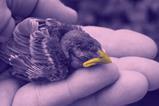Jules Loveland of Thirtyone:eight provide some crucial insights into the steps to take if a child discloses that they have been abused

Content warning: This article contains information about responding to reports of abuse which some readers may find triggering.
No one working with children likes dealing with abuse allegations, but we’ve got to do right by everyone involved, especially the child. That means responding properly when allegations are made and supporting the child through any investigations and after.
Despite what they’ve been through, the child is still just a child. They’re counting on adults to make things feel safe for them. How we react, especially with younger ones, can affect how they cope in the long term. It’s a tough situation, and we’ve got to handle it with wisdom, care and understanding.
Here’s some tips on how to respond well:
First disclosure
When a child first discloses abuse, we must listen well and respond as follows:
1. Accept what they say without judgment and reassure them for speaking up.
2. Stay calm to avoid further harm. Your reaction matters.
3. Don’t push for information. They may have been threatened not to tell.
4. Explain gently that you can’t keep secrets, but you’ll only tell those who need to know.
5. Act promptly and communicate your intentions.
6. Ensure the immediate safety of the child.
7. Document the conversation promptly, with a date, time and signature and report to the safeguarding officer.
8. If the allegation involves “sexting,” document and report details to the police.
9. Familiarise your team with safeguarding policies and the importance of reporting concerns to protect the child.
On-going support
Supporting a child extends beyond disclosure, often there are lengthy investigations, court proceedings.
Child survivors need compassion from everyone involved. They experience a range of emotions, and leaders, counsellors, and caregivers must listen without judgment, creating an environment where the child feels safe to share difficult feelings.
Further disclosures from children are common once they feel safe to talk. Handle subsequent disclosures the same way as initial ones, encouraging communication with the designated person or Safeguarding Coordinator.
Long-term support may be necessary. You need to be mindful to avoid becoming overwhelmed and withdrawing from the child or overly involved and risking harm. Maintain a balanced approach to be a consistent and supportive presence.
Pastoral care
Pastoral care is an informal role that offers a listening ear and practical support. It should not take the place of professional counselling. Counsellors working with children should have specific training and qualifications.
Pastoral care workers should be careful not to say or do things that may hinder an investigation – especially in the early stages of an investigation where the police and statutory agencies are seeking to achieve the best evidence.
If the child divulges information to a pastoral care worker this should be written down and passed to the investigating team via the Safeguarding Coordinator.
Important issues to consider:
When a child has been abused they are navigating many complex emotions. They have been traumatised. It is the job of parents, carers, and workers to avoid causing further harm. Here are some practical considerations:
1. Change in behaviour
Childhood abuse can lead to behavioural changes, such as seeking attention, aggression, or withdrawal. Academic performance may be affected, with difficulties concentrating or over-achieving. Recognising the child’s struggles and providing support is crucial, even in the face of challenging behaviour.
2. Saying ‘no!’
When a child has been abused, they can find it difficult to say ‘no’. Parents, carers and workers can help an abused child recognise they can say ‘no’ in certain situations, helping to rebuild personal boundaries.
3. Touch
Touch can be both frightening and confusing particularly if the child has been sexually abused. Touch should be initiated by the child’s needs, not yours, and the child should have the final say on the limits of physical touch with others.
4. Anger and forgiveness
Children need to know it’s OK to be angry about what has happened to them and it is not their fault. They should never be coerced into forgiving those who have abused them. It can take a long time before they understand and appreciate the full impact of what they have been through. Right now they need to understand that what happened was very wrong. It may be helpful to say that God views abuse in the same way - Matthew 18:6-9.
Spiritual challenges
Where an abused child is part of a faith community there may be spiritual issues to overcome.
For example, Christianity places a strong emphasis on family structure. A survivor may experience difficulties relating to God as a good Father, especially where those in authority (e.g. parents, teachers and leaders) have abused their position of trust. Reinforcing the positive aspects of God as a Father can help rebuild trust in adults.
“Why did God let it happen?”
One question many survivors of abuse ask is “Why did God let it happen?” Instead of starting a theological conversation acknowledge their pain, confusion and anger. It might be helpful for the child to know that God gives us freedom of choice, which is a good thing but also means that sadly some people choose wrongly and deliberately hurt others.
How can faith leaders help?
Children, young people and adult victims are helped when faith leaders:
- Put effective safeguarding measures in place.
- Take allegations and suspicions seriously and respond appropriately.
- Apologise for failing to protect the abused.
- Reject teaching that contradicts safeguarding principles.
- Ensure confidentiality. The child should know they won’t be discussed within the church. Survivors shouldn’t be identified and only those in the safeguarding policy should be told.
A note to children’s workers and parents/carers
Caring for survivors can be emotionally demanding. Practice self-care and consider sharing or writing your feelings for therapeutic benefits.
Your organisation should offer formal support for all workers.
Remember, children have strong coping mechanisms; with love and support, they can heal.
If you need support on the issues mentioned in this article call the Thirtyone:eight helpline on 0303 003 1111.








































